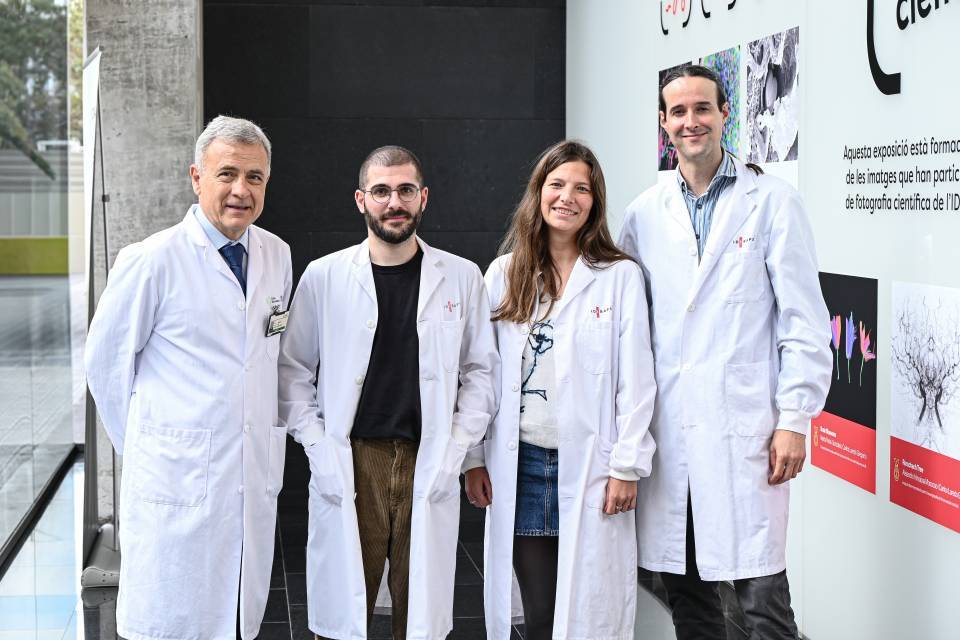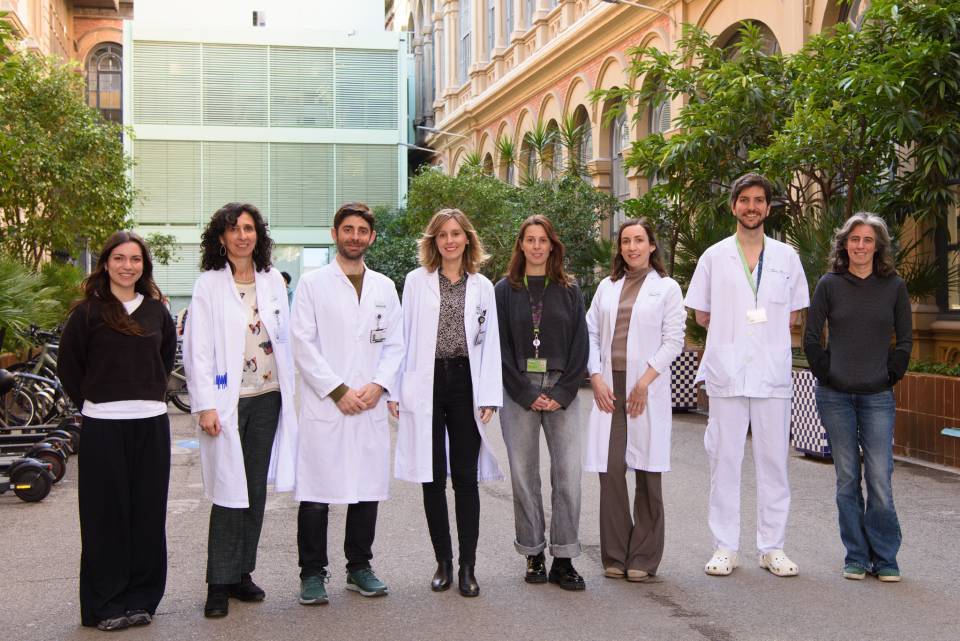Natural killer (NK) cells are a type of lymphocyte or white blood cell. As part of the immune system, they can detect and eliminate cancer cells, in addition to other functions. However, in some cases the tumour’s defences block the action of NK cells, allowing cancer cells to proliferate. Now, a study published in Nature Immunology proposes a new approach to strengthen NK cells in their fight against tumour cells. To do so, researchers used a genetic editing tool called CRISPR-Cas9 to eliminate a gene in these cells and make them resistant to the inhibition of tumour cells. Led by Aura Muntasell and Anna Rea from the Hospital del Mar Research Institute, the Autonomous University of Barcelona and Pompeu Fabra University, the study also involved Manel Juan, the head of Hospital Clínic’s Immunology Department and of the IDIBAPS research group Immunogenetics and immunotherapy in autoinflammatory and immune responses, and Francesc Balaguer, the head of the Gastroenterology Department and a researcher in the IDIBAPS research group Gastrointestinal and pancreatic oncology.
Using preclinical models of HER2-positive breast cancer and metastatic colorectal cancer tumours, the study set out to verify whether the modified NK cells could overcome the negative effects of transforming growth factor beta (TGF-β) and activin A, two molecules that tumour cells secrete to inhibit NK cells. The results, both in vitro and in mouse models, demonstrate that genetically modified NK cells could reach, penetrate and destroy tumours, meaning that they overcame their protective barrier. Part of the samples used to validate this approach were obtained from patients with a pathogenic genetic variant in the SMAD4 gene, who exhibit a form of hamartomatous gastrointestinal polyposis and served as a relevant model for this study.
To achieve these effects, the researchers removed a specific gene involved in TGF-β and activin A signalling called SMAD4. By eliminating SMAD4, NK cells became resistant to inhibition by TGF-β, but continued to have the rest of the signalling pathways available. By cooperating with other institutions, the researchers also found that using it in other NK cell-based treatments under development could enhance their effects.
Treatments based on NK lymphocytes have previously been successful in haematological tumours, but had not achieved the same level of effectiveness in solid tumours until now. These genetically modified NK cells provide a great opportunity for treatment for patients with solid tumours that are currently resistant to immunotherapy.
Enjoying the cooperation of researchers from Sweden’s Karolinska Institutet, the German company Miltenyi and the Dutch company Glycostem Therapeutics, the study was pursued as part of a European network. It also received support from researchers on CIBER’s cancer team (CIBERONC), CIBER’s hepatic and digestive diseases team (CIBERehd) and CIBER’s infectious diseases team (CIBERinfec).




